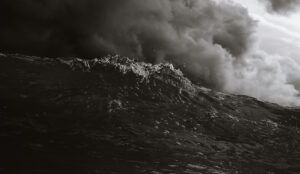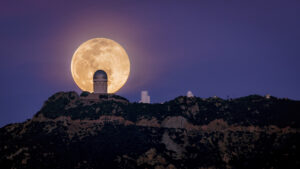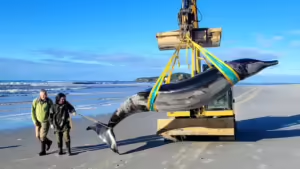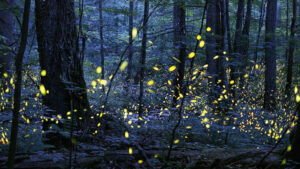This interview is done By Blaz Mazi, PhD student in philosophy.
“Is it an intrinsic part of the human condition to be always seeking something? It seems to me that quite a number of our adventurers are seeking something more than just a new vista, or new friends, or fame and glory.” Can you share some of the insights on this way of life?
A very good question, which would need a very long answer. Maybe in the shape of a book. This is an issue I have thought about a lot and there´s no doubt that the life of us humans have changed dramatically since we first ventured out of Africa some 60000 years ago. I believe it is probably written into our genes to seek new horizons as a major part of our lives, but our lifes has changed so dramatically especially over the last 100 years it seems like just a few today choose to pursue a life on the edge. Today it seems like most people all over the world seek a more comfortable and predictable life, very much due to the modern society and its urban development and this worries me a lot. This choice makes people less aware, boring, more judgmental and I would say less intelligent.
As for adventurers and explorers of today, due to that we live in a more commercialized society, we have changed as well. There´s less of the observational style of exploration today and much more sports related adventures where the self is more important than the journey. Obviously I don´t like this development, because we need more observational exploration, but this is how it looks today in general I am afraid.
However, I think, sooner or later, we will get a new generation of adventurers and explorers, where the self is less important and the surroundings the main goal. Back to the more Walt Whitman style of exploration. And Ibn Battutas astiute observational style of travel.
Would you say there are more explorer then in the past? Is “out there” still something to explore?
As regards to the question is there sstill something out there to explore, the answer is YES! We just know a few percent of the knowledge of life in the oceans for example and the world is forever changing, so new eyes are always needed and we know today that what was once a truth isn´t today, so yes, the world is continuously changing. Right now for example i am working on a project about Stalin´s biggest penalty camp in area, Karlag in Kazakhstan, and there´s quite a lot of new information from new sources coming out each day which to degree rewrites its history.
I think we have more people calling themselves explorers and adventurers today than earlier, much due to improved living conditions. For example, I come from what the English calls a working class background and if I would have been born just 20 years earlier, I wouldn´t have been working with what I do today.So development is good!
Exploration is a never ending topic! It will always be needed!
On your website you offer 9 tips how to become modern day explorer. Would you say explorers are looked down on in the neoliberal world of effectivity, productivity, make it-or-break it society?
Well, interesting question. Some adventurers and explorers get very well paid motivational speaking fees where they use their experiences to either motivate an audience to dare to do things or to be part of a business development. But they are primarily seen as athletes. The old explorer style of observing the environment around them in their travels is much less in demand in today’s world. Once again due to a society who demands speed and less thoughtful intelligence.
You need a vision, an idea which differs from most others… You create your own visions and ideas through intense, careful and thorough research by reading, studying and talking to people.” Do you read a lot? What do you read and study?
I spend almost all my free time from work and family reading. Today, unfortunately, there´s no time to read anything else than books on the topic I have chosen to work with. So today I read everything from Aleksandr Solzhinytsin to Noam Chomsky and Slavoj Zizek.
“Prepare, prepare, prepare”. Which areas do you put emphasis on? Is it possible to prepare mentally or is your way of life and numerous expeditions already preparation?
To a certain degree I think that either got what is needed or not. One can train just to a certain degree and after that you need to have what it takes from birth. For me, exploration is a love of life that I have had since my teens. Even earlier. So even today through reading and physical training I am always prepared to embark on a new journey. Obviously with age, t gets less physical and more intellectual. Preparations depends on what is waiting ahead of you. Since I like eating and I am really good at putting on fat, I like to do extrme cold journeys where extra fat is needed for survival!
What was motivation for going to Yemen? Particular current political situation? Adventure? You wanted to convey a special message or find out first hand what is going on?
Current affairs is a major interst for me. So is the fact of trying to get a different perspective on things highlighted in media of today. We have a media today which is dominated by the Anglo-Saxon´s and their world view which I am no fan of and a lot of what is published for example on Yemen today in the biggest media just isnt the truth, but written to fit in with the world view of the Ango-Saxons. This is later, due to economics and other choices, copied by the rest of the world media. So I wanted to first hand see hwat was going on plus do a documentary and write articles which would give a fair image of this extra ordinary country. With emphasis on the positive points. Which are overwhelming.
“Together with the Swedish journalist, Tanya Holm, Kensington the Camel and a few of the oldest inhabitants of Arabia, the Bedus, I have traveled through one of the hottest deserts on earth. We didn’t meet any terrorists, religious extremists and nobody got killed. I didn’t even feel any serious fear. What we found during this adventurous walk, in our search of the real Arabia, was a Middle Eastern country very different from the one portrayed in the global media.” Different in what way?
See answer in previous question.
Can you please describe your gear, company and everyday struggles?
My choice of gear depends on which region I want to explore. But basics are tent, mattress, sleeping bag, stove, food, maps, camera and tech equipment. One of the biggest joys of travelling is the basic living in a tent in some great nature.
How were you supplying yourself? What was your staple food?
Even though it might seem when looking at a map, an area like Al Mahra desert in Yemen is totally void of people, there are small settlements (tented camps) every 20-25 km, so finding food and water isn´t a problem with these very generous people.
Staple food in Al Mahra was rice and bread.
From stroller walk to Siberia and on to camel in Yemen (along other expeditions…) Do you like diversity? In life in general?
Yes, I need diversity, hate predictability and modern routine. Luckily I have a wife and children who agree! You know, the biggest lesson of all I have learnt is how short life is and nobody will thank you for not living to its fullest. In a 100 years we will be forgotten anyway, so better to live to its maximum capacity!
What is your experience of bedouins?
This great people, the original inhabitans of the Arabian Peninsula, is a very generous, simple and kind people who have adapted to an extreme environment few people could survive for more than a few days. Their life is very strict and demanding and they´re marginalized in most countries where they exist.
What was the greatest danger?
In Yemen? The desert? Hmmm, I guess getting kicked or bitten by an angry male camel!
What was your “panic button” if anything went wrong??
Satellite phone….but best is to forget you carry one, in most cases it will take too much time to get any help, so better is to be on your toes all the time.
How do you feel about modern explorers who need to be very public, media oriented and available for media spectacle? (does it affect the depth of experience?)
I have been part of it in my earlier days. Did it help? Yes it did. Was it worth it? As an experience, yes. Do I need it today? Just to a certain degree, but not the spectacle. But obviously I want people to read and see what i do, so for this reason I need a certain attention from media, but I only work with serious media and the one´s I´d like to work with. Does it affect the depth of experience? Yes, it does, the spectacle does. But it might be for the good. It depends on what kind of a journey you do. If you walk down the Nile and all attention is on you, not the surroundings, I don´t think that is for the good. But if there´s attention before you leave and when you come home, that is great! We all need to make a living, but decisions can be taken to avoid attention on yourself as the main goal.
So, sponsors are in a way something one can not avoid for such way of life?
If you can find money in other ways, that is much better. Than again, there are good and intelligent sponsors out there who understands the goal, not the attention of stupidity. I work with a few sponsors who help me with equipment and depend almost nothing in return, but I fund my journeys elsewhere, mainly through the documentary film work.






